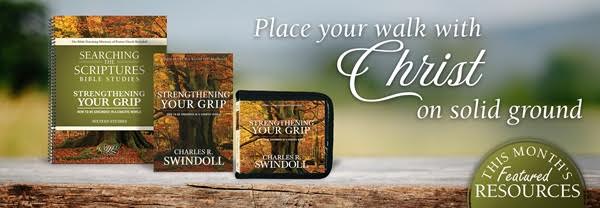Bound to Memorize - Today's Insight - December 25, 2021
Solomon offered several insights about the value of placing God’s Word at the center of our lives. Let’s begin with Proverbs 4:4, where the wise king recalled the instruction of his own father, David:
Then he taught me and said to me,
“Let your heart hold fast my words;
Keep my commandments and live.”
Take note of the words hold fast. In the Hebrew, the word translated “hold fast” means “to grasp, lay hold of, seize, hold firmly.” It is the verb tamak, the same term found in the Isaiah 41:10 statement of God’s promise to His covenant people:
Do not fear, for I am with you;
Do not anxiously look about you, for I am your God.
I will strengthen you, surely I will help you,
Surely I will uphold you with My righteous right hand.
The word uphold is a translation of the same verb, tamak. This Hebrew word most often appears in these two contexts: God’s people holding fast to biblical wisdom (Proverbs 3:18; 4:4) and God holding fast to His people. Scripture knowledge helps you participate in a reciprocal relationship in which you gain a firm grip of confidence in the Bible and God sustains you through difficulties. As God’s Word gets a grip on you, it truly does uphold you!
Consider also this fatherly counsel from Solomon:
My son, observe the commandment of your father
And do not forsake the teaching of your mother;
Bind them continually on your heart;
Tie them around your neck.
When you walk about, they will guide you;
When you sleep, they will watch over you;
And when you awake, they will talk to you.
For the commandment is a lamp and the teaching is light;
And reproofs for discipline are the way of life. (Proverbs 6:20-23)
Go back and locate bind and tie. The image recalls the instructions God gave Israel upon entering Canaan. After commanding His people to love Him “with all your heart and with all your soul and with all your might” (Deuteronomy 6:4-5), God said this:
These words, which I am commanding you today, shall be on your heart. You shall teach them diligently to your sons and shall talk of them when you sit in your house and when you walk by the way and when you lie down and when you rise up. You shall bind them as a sign on your hand and they shall be as frontals on your forehead. You shall write them on the doorposts of your house and on your gates. (6:6-9)
God’s covenant people took these words so seriously that they crafted little leather pouches called phylacteries, placed copies of important scriptures inside, and then literally bound them to their right hands and their foreheads. Faithful Jews do this for important ceremonies to this very day. The Hebrews also attach mezuzahs to their doorposts. These small metal containers also hold important, handwritten Scriptures written on strips of paper.
While there’s nothing wrong with these traditions—Cynthia and I have placed a mezuzah on our own front door—the Lord’s point is more practical. He wants His Word to permeate every household and to penetrate each heart. He wants our culture and lifestyle to revolve around Scripture. It’s great to have family devotions, but it’s even better to make the Bible as common in conversation as the weather, sports, daily news, public events, or neighborhood happenings.
From Living the Proverbs by Charles R. Swindoll, copyright © 2012. Reprinted by permission of Worthy Inspired., an imprint of Hachette Book Group, Inc.
Used with permission. All rights reserved.
Listen to today's broadcast of Insight for Living with Chuck Swindoll at OnePlace.com.
Visit the Bible-teaching ministry of Chuck Swindoll at www.insight.org.







